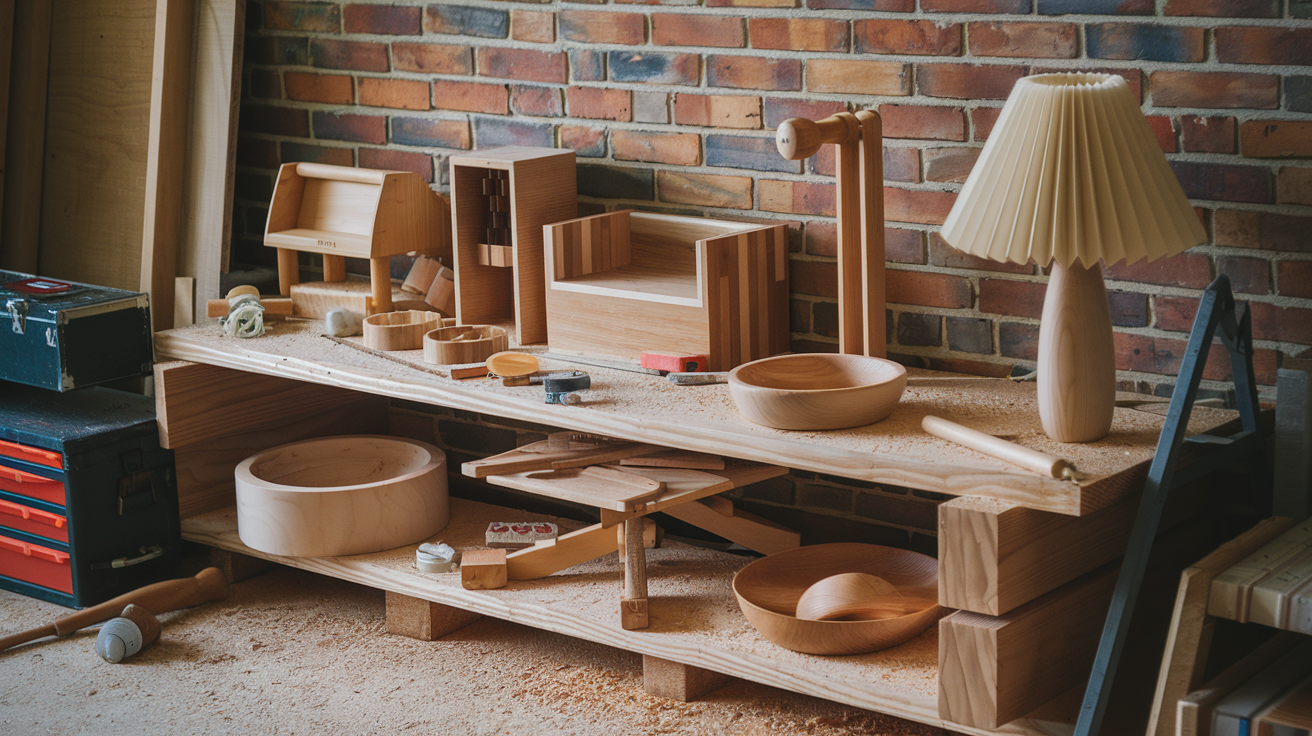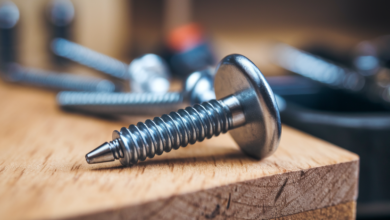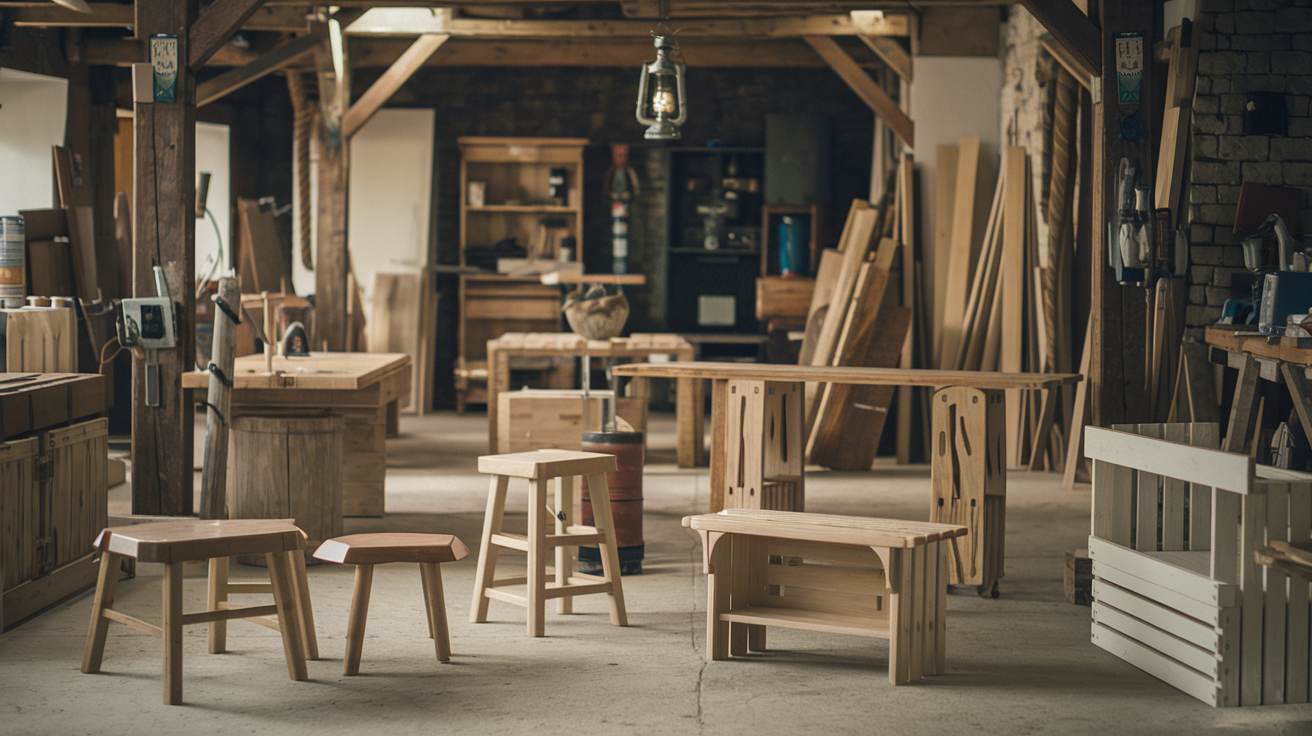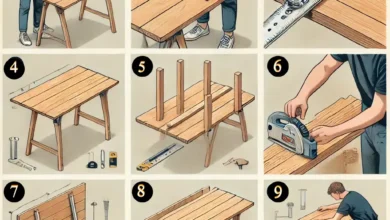Detailed Review of the Best Jigsaws for Woodworking Projects
Woodworking jigs are the unsung heroes in every workshop, adding precision, efficiency, and safety to an array of tasks. These tools simplify complex projects, allowing woodworkers to produce consistent, professional-quality results. From dovetail to tapering jigs and crosscut sleds, each type of jig has a unique role.
Here, I’ll into the best jigsaws on the market, especially suited for serious woodworkers, based on hands-on experience, real-world application, and detailed analysis of their pros and cons.
Why Woodworking Jigs are Essential
Woodworking jigs are more than accessories; they’re essential tools that improve accuracy, speed, and safety.
In my experience, the best jigs allow you to focus on the creative side of woodworking by removing a lot of the repetitive work and minimizing the room for error.
For beginners, they act as a third hand, providing support and guidance. For professionals, they are indispensable tools for achieving exact measurements, clean cuts, and perfect alignment.
Types of Jigs in My Workshop
- Drill Jigs
- Use: Perfect for drilling consistently placed holes. This jig ensures perfect alignment every time, especially useful in creating dowel joints or pocket holes.
- Personal Insight: This type of jig has saved me countless hours and removed much of the guesswork from drilling, particularly on larger projects where alignment is critical.
- Router Jigs
- Use: Critical for clean edges and intricate designs, router jigs allow for precise patterns and smooth finishes.
- Personal Insight: I rely on router jigs for any fine woodwork, such as edge profiling and inlay designs. They offer stable control, allowing me to work with confidence on detailed projects.
- Dovetail Jigs
- Use: These are a go-to for creating interlocking joints, especially valuable for furniture making and box constructions.
- Personal Insight: Dovetail joints are notoriously difficult to perfect without a jig. I’ve found that a good dovetail jig makes this process far easier, producing professional-quality joints that add durability and aesthetic appeal.
- Crosscut Sleds
- Use: Designed for table saws, crosscut sleds offer stability for making precise crosscuts.
- Personal Insight: This jig is indispensable for square cuts, especially on large pieces. In my workshop, I use it for everything from framing to creating panels for cabinets.
- Tapering Jigs
- Use: Ideal for angled cuts, commonly used for table legs or tapered edges.
- Personal Insight: This jig has helped me add an elegant, angled look to many pieces. It’s versatile, easy to adjust, and essential for projects that require a unique profile.
Top Jigsaws for Woodworking
After testing multiple models in my workshop, these jigsaws stand out as the best tools for cutting curves, intricate designs, and large sheets with accuracy.
Here are my thoughts on some of the top-rated models available:
DEWALT DCS334B 20V Max Brushless Jigsaw
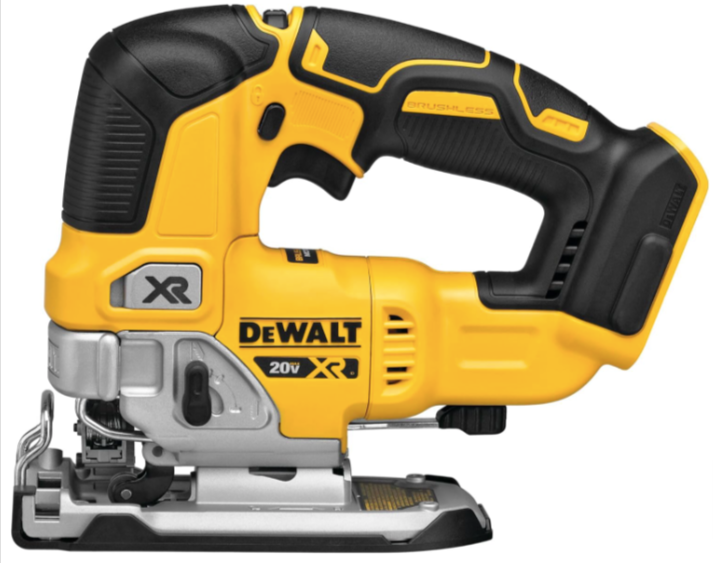
- Key Features: Brushless motor for long-lasting performance, adjustable speed control, cordless design, tool-free blade change.
- Real-World Performance: This jigsaw has been a game-changer in my workshop. The brushless motor not only extends battery life but also ensures the tool runs smoothly on challenging cuts. The cordless feature offers unrestricted movement, which is invaluable when working on large sheets or tight curves.
- What I Loved: The variable speed allows me to slow down for more delicate, detailed work and speed up for larger cuts. The blade-changing mechanism is intuitive, reducing downtime and frustration.
- Room for Improvement: The battery isn’t included, which could be a downside if you’re buying into DEWALT’s ecosystem for the first time.
- Verdict: Ideal for anyone looking for a versatile, high-performance jigsaw that’s equally at home with rough cuts and detailed patterns.
Bosch JS260 120-Volt Top-Handle Jigsaw
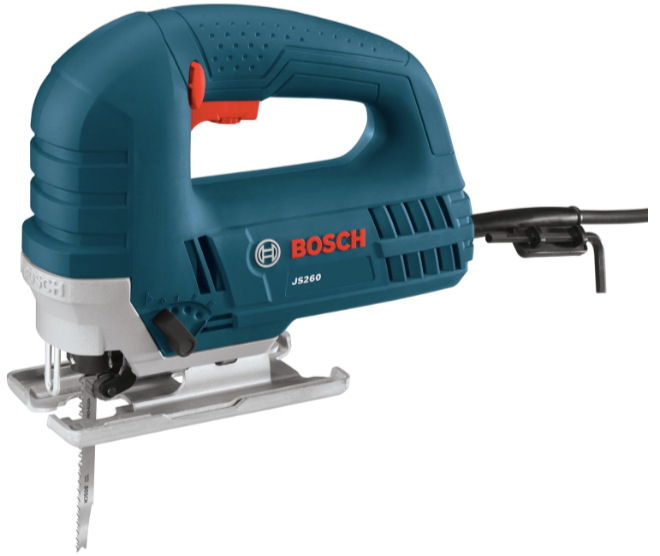
- Key Features: 120V motor, dust blower, ergonomic top handle, adjustable speed.
- Real-World Performance: The Bosch JS260 has a smooth, consistent feel, making it perfect for medium-sized projects. I especially appreciate the built-in dust blower, which keeps my cutting line visible without the need for frequent adjustments.
- What I Loved: The ergonomic handle allows me to work for hours without strain. Additionally, the blade tracking and stability are outstanding, which enhances control on tight curves.
- Room for Improvement: As a corded model, mobility is limited; however, this isn’t much of a drawback in a stationary workshop.
- Verdict: A great option for anyone who prioritizes steady performance and comfort during extended use.
DEWALT DCS331B 20-Volt Li-Ion Jigsaw

- Key Features: Cordless freedom, adjustable bevel, tool-free blade change, powerful battery life.
- Real-World Performance: I’ve used this model for everything from plywood to hardwood, and it performs excellently in each scenario. The adjustable bevel is a fantastic feature for angled cuts, and it doesn’t overheat even on prolonged use.
- What I Loved: Being cordless, it allows flexibility around the workshop. The power output is reliable, and the battery life is strong, making it suitable for lengthy projects.
- Room for Improvement: It’s slightly heavy, especially with the battery, which might be an issue if you’re handling it overhead for extended periods.
- Verdict: Perfect for woodworkers who want cordless flexibility without compromising on power. Great for both professional and serious hobbyist use.
DEWALT DW331K 6.5 Amp Top-Handle Jigsaw
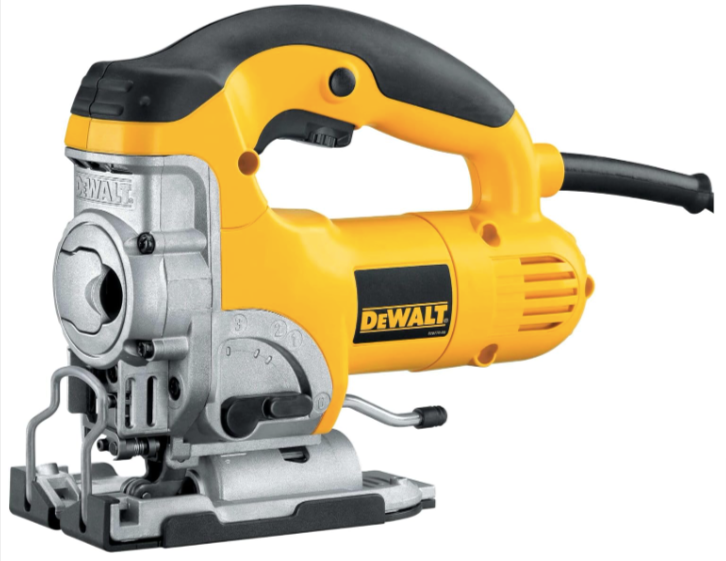
- Key Features: 6.5-amp motor, variable speed, sturdy build, dust blower.
- Real-World Performance: The DW331K is a powerhouse that’s ready to take on tough materials. I’ve used it extensively on hard and softwood, and it maintains a strong and steady performance.
- What I Loved: This jigsaw has a solid feel, with minimal vibration, allowing for a stable cut even on thicker wood. The dust blower keeps the line visible, and the motor doesn’t lose power even on intensive tasks.
- Room for Improvement: It’s corded, so for larger spaces, you’ll need an extension cord, which can be a minor hassle.
- Verdict: Ideal for anyone who works with heavy-duty materials and needs a reliable, continuous power source.
Choosing the Right Jigsaw and Jig for Your Projects
Selecting the best jigsaw involves assessing what kind of cuts you frequently make, your workspace setup, and your budget.
Here’s what I recommend based on my experiences:
- For Heavy-Duty Work: Go with a corded model like the DEWALT DW331K. It provides consistent power and doesn’t require recharging, perfect for a workshop environment.
- For Versatility: The DEWALT DCS334B stands out for its cordless convenience, especially in settings where maneuverability is key.
- Budget-Friendly Option: Bosch JS260 delivers great performance without breaking the bank. It’s an excellent choice if you’re looking for a reliable corded option.
Essential Tips for Using Woodworking Jigs and Jigsaws
- Clamping Is Key: Always clamp your jigs and materials securely. This ensures stability and safety, especially during intricate cuts.
- Regular Maintenance: Clean jigsaws and jigs after every project. Wood dust can impact performance and wear down components over time.
- Master the Basics: Start with simpler jigs before moving on to specialized ones. You’ll develop better technique and make fewer mistakes.
- Adjust Speeds Based on Material: For hardwoods, slower speeds will give cleaner cuts; higher speeds work well on softwoods and plywood.
Whether you’re setting up a beginner’s workshop or enhancing your professional workspace, quality jigs and a reliable jigsaw can take your craftsmanship to new heights.
These tools don’t just help create; they elevate your woodworking projects by making them more precise, consistent, and enjoyable to execute.

